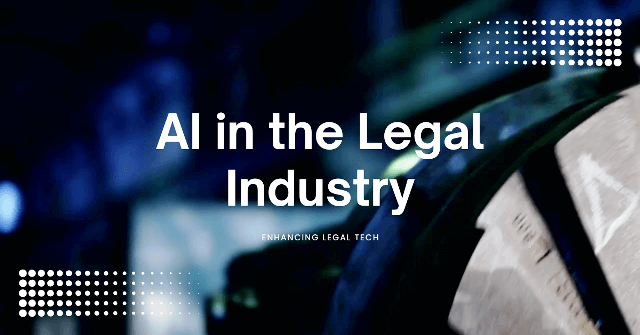If you’ve ever stepped into the world of legal research, you know it’s a process that demands precision, patience, and an extraordinary amount of time.
Traditionally, legal professionals have spent hours sifting through case law, statutes, regulations, and scholarly articles to build a solid argument or stay compliant with evolving laws. But now, artificial intelligence (AI) is changing the way legal research works — and it’s doing so at a pace that’s hard to ignore.
In this post, we’ll unpack how AI is transforming legal research, the benefits it brings, the challenges it poses, and what the future might hold for law firms, courts, and in-house legal teams around the world.
What Is Legal Research in AI?
Legal research in AI refers to the use of machine learning algorithms, natural language processing (NLP), and other AI techniques to analyze legal documents, case law, and legislation. The goal is to automate or assist in the process of finding relevant legal information quickly and accurately.
Think of it as having a digital research assistant who never sleeps, reads thousands of pages in seconds, and highlights exactly what you need. AI tools don’t just retrieve documents — they understand context, recognize legal principles, and even predict case outcomes based on historical patterns.
How Does AI-Powered Legal Research Work?
Modern AI-driven legal research platforms use a combination of technologies:
- Natural Language Processing (NLP): Allows the system to interpret legal queries in plain language and identify relevant statutes, cases, and regulations.
- Machine Learning: Continuously improves the system’s accuracy by learning from past searches, document selections, and legal decisions.
- Data Mining: Extracts patterns and connections from vast legal databases.
For instance, a lawyer might type in, “Recent cases on employee data privacy breaches in the UK,” and an AI-powered platform can instantly scan millions of documents, prioritize results based on relevance, and even suggest related topics or precedents the lawyer hadn’t considered.
Why AI Is a Game-Changer for Legal Research
Legal professionals are under growing pressure to do more in less time, with absolute accuracy. AI offers solutions that meet these demands in several impactful ways:
- 1. Time Savings: Research tasks that once took days can now be completed in minutes. AI tools can comb through enormous databases, identify relevant content, and surface key insights almost instantly.
- 2. Improved Accuracy: Unlike humans, AI systems don’t get tired or distracted. This minimizes the risk of overlooking crucial precedents or misinterpreting statutes, which can be costly in legal cases.
- 3. Enhanced Decision-Making: AI tools often come with analytical features that assess how a particular judge has ruled on similar cases or how courts have historically interpreted a specific statute. This information can be invaluable in crafting case strategies or advising clients.
- 4. Better Resource Management: By automating tedious research tasks, law firms can free up junior lawyers and paralegals to focus on higher-value work, like strategy development and client consultations.
Real-World Applications of AI in Legal Research
AI is no longer a futuristic concept in law — it’s already embedded in many legal workflows. Here are a few ways it’s being applied:
- Case Law Search Engines: Tools like Westlaw Edge, Lexis+ and ROSS Intelligence use AI to interpret natural language queries and return highly relevant case results.
- Contract Review: AI platforms can analyze contracts to identify risks, suggest edits, and flag missing clauses.
- Predictive Analytics: Some AI systems can forecast case outcomes based on historical data, helping lawyers gauge the likelihood of success before going to court.
- Regulatory Compliance: AI tools monitor legislative changes and regulatory updates to keep legal teams informed and compliant in real-time.
Challenges and Ethical Considerations
While AI has brought undeniable benefits to legal research, it’s not without its complications:
- 1. Bias in Data: AI models are only as good as the data they’re trained on. If historical legal decisions contain biases, those can be unintentionally perpetuated by AI systems.
- 2. Transparency Issues: Some AI tools function as black boxes, making it difficult for users to understand how conclusions are reached. In the legal profession, where reasoning and precedent are critical, this can be problematic.
- 3. Data Privacy: Legal documents often contain sensitive client information. AI systems handling this data must comply with strict privacy laws and ensure robust security measures.
- 4. Job Displacement Fears: There’s ongoing debate about whether AI will replace junior lawyers and paralegals. While automation will change some job roles, it’s more likely to shift responsibilities toward strategic, high-level legal work.
The Future of AI in Legal Research
Looking ahead, AI is set to become even more deeply integrated into legal practice. We can expect:
- More Advanced NLP Capabilities: AI will better understand nuanced legal language and interpret complex case details.
- Integration with Court Systems: Direct connections between AI research tools and court databases will provide real-time updates on case law and decisions.
- Greater Focus on Explainability: AI developers will be under increased pressure to make their algorithms transparent and their decision-making processes understandable to legal professionals.
- Collaborative AI Tools: Future platforms will likely function as collaborative partners, suggesting strategies, summarizing lengthy judgments, and even drafting legal documents under a lawyer’s supervision.
Frequently Asked Questions
Will AI replace human legal researchers?
Not entirely. While AI can handle routine research tasks quickly and accurately, complex legal reasoning, ethical considerations, and client strategy still require human expertise. AI is a tool to enhance — not replace — legal professionals.
Is AI in legal research reliable?
When properly designed and trained on high-quality data, AI can be highly reliable. However, like any tool, it should be used in combination with human oversight, especially in high-stakes cases.
What’s the biggest advantage of AI-powered legal research?
The biggest advantage is speed and efficiency. AI can process vast amounts of information in seconds, allowing legal professionals to focus on higher-value, strategic work.
Are AI legal research tools expensive?
Costs vary widely depending on the tool’s capabilities and the size of your practice. Some platforms offer enterprise-level solutions for large firms, while others provide affordable subscriptions for solo practitioners and small firms.
Is using AI for legal research ethical?
Yes — provided it’s used responsibly, with attention to bias, data security, and client confidentiality. The ethical use of AI in law is guided by bar associations and regulatory bodies to ensure fairness and accountability.
Final Thoughts
AI is transforming legal research in ways few could have imagined a decade ago. It’s making legal services faster, more precise, and accessible — but it’s also raising important questions about ethics, transparency, and the future role of human professionals in the justice system.
One thing is clear: AI isn’t here to replace lawyers. It’s here to empower them.
As AI technology continues to evolve, the legal profession stands on the brink of a new era where machines and humans collaborate to deliver better, fairer, and more efficient legal services.



